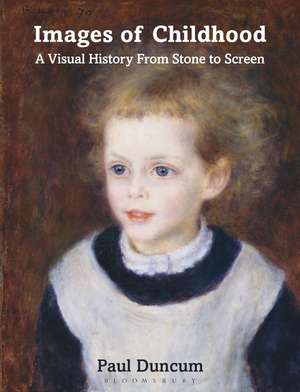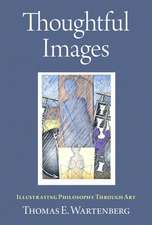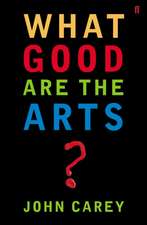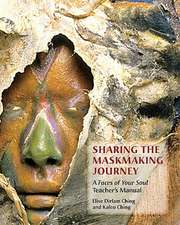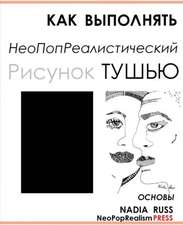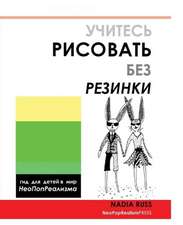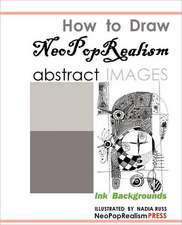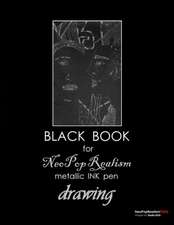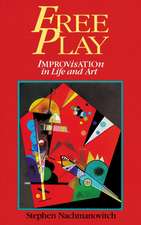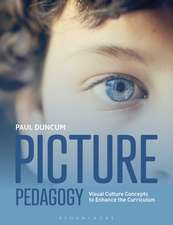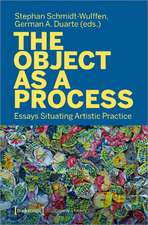Images of Childhood: A Visual History From Stone to Screen
Autor Professor Emeritus Paul Duncumen Limba Engleză Paperback – 9 aug 2023
| Toate formatele și edițiile | Preț | Express |
|---|---|---|
| Paperback (1) | 168.15 lei 3-5 săpt. | +32.16 lei 6-12 zile |
| Bloomsbury Publishing – 9 aug 2023 | 168.15 lei 3-5 săpt. | +32.16 lei 6-12 zile |
| Hardback (1) | 476.52 lei 3-5 săpt. | |
| Bloomsbury Publishing – 9 aug 2023 | 476.52 lei 3-5 săpt. |
Preț: 168.15 lei
Preț vechi: 180.37 lei
-7% Nou
Puncte Express: 252
Preț estimativ în valută:
32.18€ • 33.55$ • 26.74£
32.18€ • 33.55$ • 26.74£
Carte disponibilă
Livrare economică 28 februarie-14 martie
Livrare express 13-19 februarie pentru 42.15 lei
Preluare comenzi: 021 569.72.76
Specificații
ISBN-13: 9781350299948
ISBN-10: 1350299944
Pagini: 280
Ilustrații: 150 colour illus
Dimensiuni: 189 x 246 x 25 mm
Greutate: 0.45 kg
Editura: Bloomsbury Publishing
Colecția Bloomsbury Visual Arts
Locul publicării:London, United Kingdom
ISBN-10: 1350299944
Pagini: 280
Ilustrații: 150 colour illus
Dimensiuni: 189 x 246 x 25 mm
Greutate: 0.45 kg
Editura: Bloomsbury Publishing
Colecția Bloomsbury Visual Arts
Locul publicării:London, United Kingdom
Caracteristici
A brief history of when, why, and how childhood became an important subject in visual culture is provided in the introduction, alongside key definitions of childhood and accessible sociological and psychological theory
Notă biografică
Paul Duncum is Professor Emeritus at the University of Illinois, USA, and Adjunct Professor at the University of Tasmania, Australia. He is the author of Picture Pedagogy (Bloomsbury, 2020) and Popular Pleasures (Bloomsbury, 2021).
Cuprins
List of IllustrationsIntroduction1. Children as Worthy Subject2. Children as Family Member3. Children as Gendered4. Children as Adult5. Children as Schooled6. Children as Aesthetic7. Children as Victim8. Children as Threat9. Economic Entity10. Political Propaganda11. Children as InnocentBibliographyIndex
Recenzii
Anchored by respect for children and by compelling imagery, Paul Duncum comprehensively and captivatingly interrogates multiple and contradictory discourses that generate both personal and public conceptions of childhood.
Images convey so much more than we realize. This extraordinary and seminal text will surely expand, enrich, even interrogate, one's conceptions of what childhood has meant across history, cultural studies and psychology.
Deconstructing childhood imagery and its ideologies, this book outlines the different ways of understanding infancy throughout history. Gender, abuse, victimization, and commoditization are some of the issues the author reveals through a wide array of historical images.
Examining the trope of childhood innocence that permeates representations of children throughout Western history, this engaging text highlights the role images play in shaping our conceptions of childhood and our enduring cultural ambivalence toward children.
Images convey so much more than we realize. This extraordinary and seminal text will surely expand, enrich, even interrogate, one's conceptions of what childhood has meant across history, cultural studies and psychology.
Deconstructing childhood imagery and its ideologies, this book outlines the different ways of understanding infancy throughout history. Gender, abuse, victimization, and commoditization are some of the issues the author reveals through a wide array of historical images.
Examining the trope of childhood innocence that permeates representations of children throughout Western history, this engaging text highlights the role images play in shaping our conceptions of childhood and our enduring cultural ambivalence toward children.
Descriere
By surveying historical constructions of childhood, this book explores how representations of the child in visual culture reinforce or challenge the dominant ideology about their innocence.
